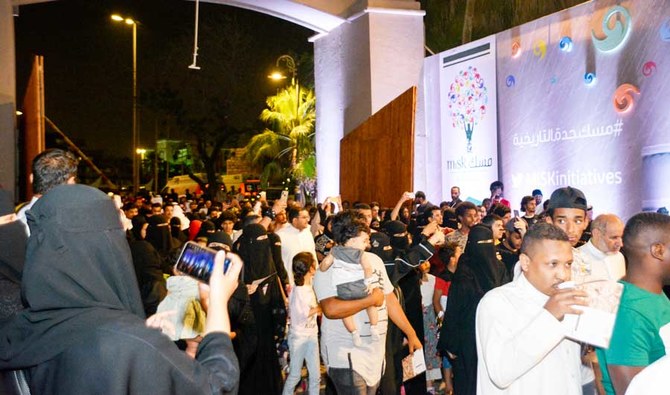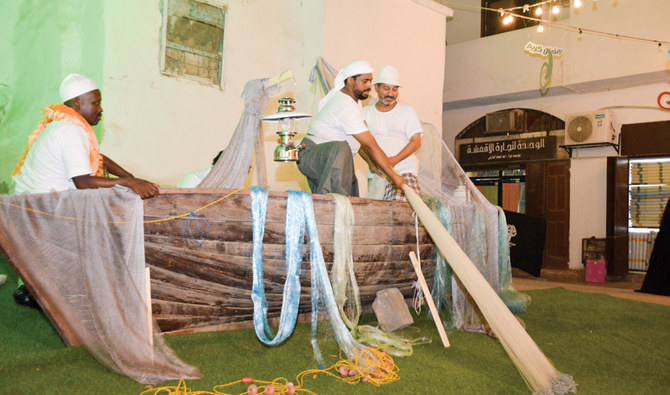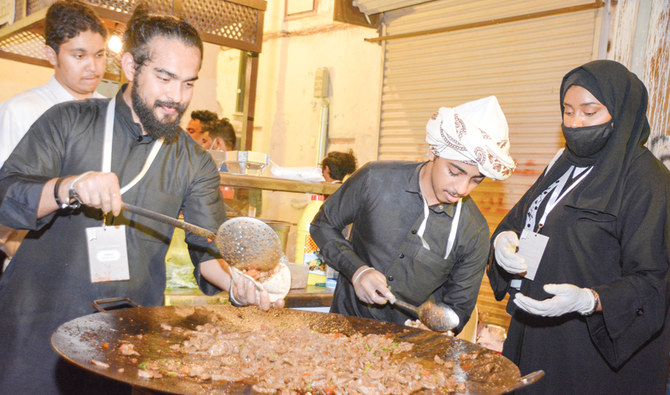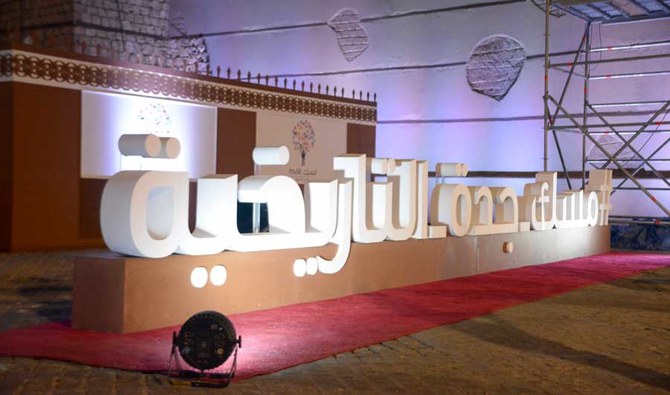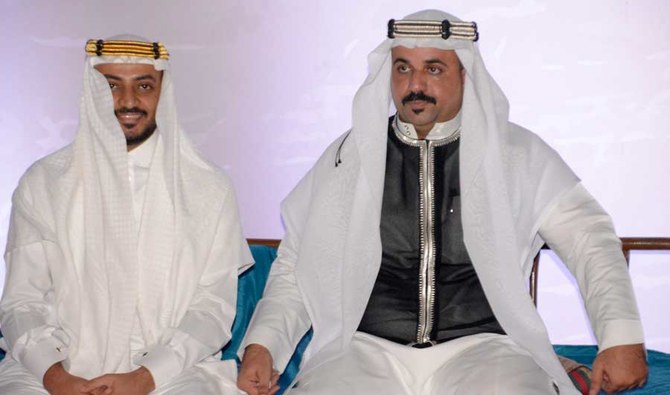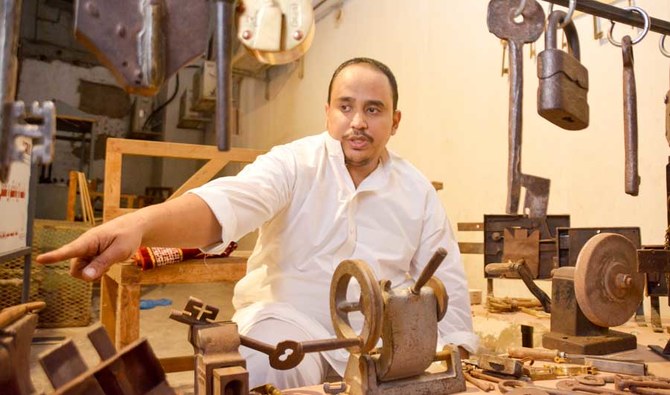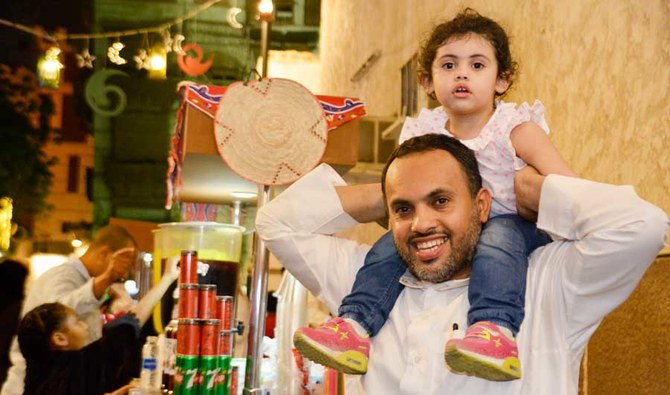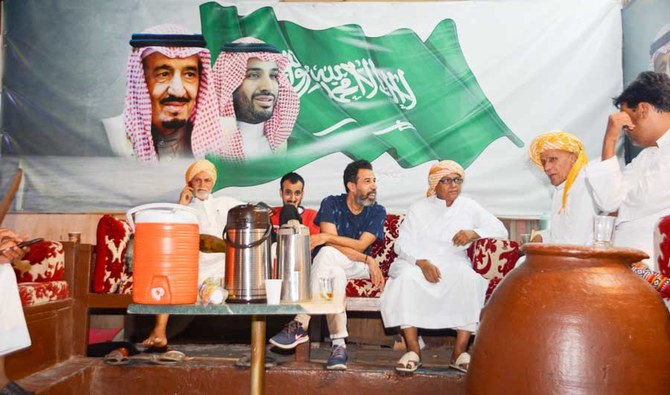JEDDAH: Jeddah’s historical area welcomed visitors with songs as part of the third edition of the “Misk Historic Jeddah” initiative, which highlights the city’s historical and cultural importance.
The event, which was launched last Tuesday and runs until May 20, features entertainment and activities for people from all walks of life including a holographic play.
The Center for Initiatives at Crown Prince Mohammed bin Salman’s MisK Foundation aims to highlight and revive the old part of Jeddah, as well as promote the Kingdom’s cultural heritage.
Visitors to Jeddah’s ancient port center Al-Balad, which has been a UNESCO Cultural Heritage site since 2014, are presented with a vivid recreation of life in the past.
Founded in the 7th century C.E., Al-Balad once served as a center of trade and commerce for Jeddah. But most of the ancient walls that surrounded the town, and the souq within it, became weathered and were eventually torn down as centuries passed.
As wealth from oil began to flow into the Saudi economy, and the country began a march toward modernity, many people moved out of the cramped spaces of Al-Balad, leaving its more palatial homes and buildings to slow dilapidation.
“Misk Historic Jeddah” shines a light on life in the old part of Jeddah, with teams of men and women on hand to guide visitors through buildings, art and craftsmanship.
Reham Flimban said this year’s event included 19 main areas for the whole family. “There are special events for children such as puppet theater and museums, Misk art gallery, authentic cafes and more,” she said.
The historical area recalls times past, with street vendors and children playing traditional games, and many Saudis have participated in the event to revive old professions and crafts.
Crafts and Activities
Visitors strolling through the streets and alleys get an insight into disappearing trades. One young Saudi keymaker is presenting a collection of keys that are more than 200 years old.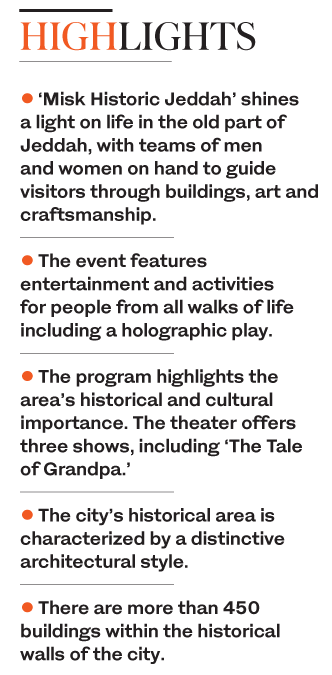
Anas Rajab, who inherited the trade from his father and grandfather, said he was proud to show off his craft to the next generation and that his family has more than 90 years of experience in the key-making field.
Rajab has a collection of over 2,000 different keys and locks and has kept a prototype of the first lock.
“I have a lot of rare keys, it is my profession and the profession of my ancestors,” he said.
Rajab also said that a key museum would soon open in Saudi Arabia. “This museum will be the first of its kind in the Middle East and will highlight the craft of keymaking and will also present a rare collection of keys and locks from all over the world.”
Visitors are attracted to the traditional entertainment activities on offer, an escape from the modern technology that surrounds them, and the puppet show is a hit with children.
Saudi novelist Maha Aboud Baashen wrote the story for the puppet show.
“The scenario aims to plant the value of preserving our Saudi heritage and explain it to children through fun and simple content in a 12-minute show,” she said.
Two eight-meter high murals, painted by four Saudi artists, welcome visitors.
“I love the spirit of teamwork here and I believe that participating in this event will give me a lot as I got to meet many talented artists,” one of the mural artists, Kholood Al-Amri, said.
Historical area
Jeddah’s historical area is characterized by a distinctive architectural style. Its engraved wooden features and buildings belonging to old Jeddah families, including Nasif House, one of the most important in the area, have been transformed into a museum and a cultural center for artifacts, images and manuscripts.
There are more than 450 buildings within the historical walls of the city, 56 of which are in urgent need of repair.
SR50 million ($13.33 million) was pledged by the crown prince to support the restoration of these buildings as they represent a major part of the Kingdom’s ancient heritage and are a significant tourist site.
Jeddah Zaman
“Jeddah Zaman” showcases the city’s historical monuments using miniature models and allows visitors to view a detailed map of historic Jeddah.
There are several activities for children in a dedicated area including traditional games and face painting.
The theater has three shows, including “The Tale of Grandpa” which is performed three times a day and showcases the most important events in the historic area.
“Craftsmen Street” introduces visitors to the traditional crafts of ancient Jeddah, and there is also an exhibition of old photographs of Jeddah.


